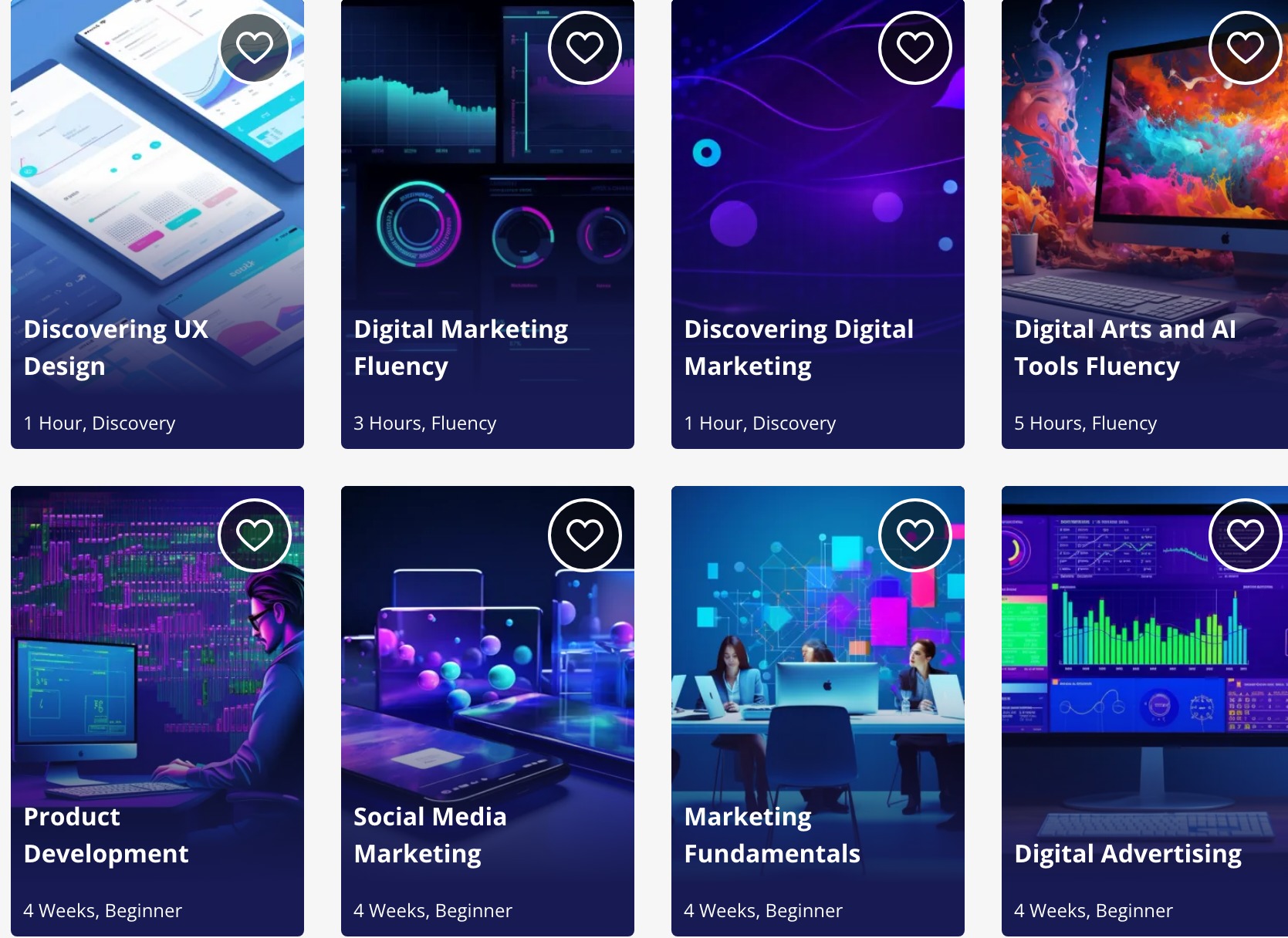In the ever-evolving job market landscape, career change and upskilling have become essential strategies for staying competitive and achieving personal and professional growth. Fortunately, the rise of Massive Open Online Courses (MOOCs) continues democratizing education. MOOC platforms provide individuals with accessible, flexible, and cost-effective opportunities to acquire new skills and transition into new career paths. AI and digitization, a labor market in flux, and an aging labor force, all suggest the need for upskilling. As such, MOOC platforms serve a vital function to support career transition and chart new directions in life. In this article, we look at upskilling with MOOCs and review one of the world’s leading MOOC platforms, Udacity
The Importance of Upskilling in Today’s Workforce
Upskilling, in today’s rapidly evolving job market, has become more than just a buzzword; it’s necessary for individuals and organizations alike. Let’s dive into this concept, define it, and explore the key trends driving the increasing need for upskilling in the contemporary workforce.
What is Upskilling
Upskilling refers to the process of acquiring new skills or enhancing existing ones to remain relevant and competitive in the job market. It reflects a proactive approach to personal and professional development. Key drivers include the recognition that once valuable skills may become obsolete due to technological advancements, industry changes, or shifts in job requirements.
Across G20 countries, failing to meet the skills demand of the new technological era could put at risk $11.5 trillion in potential GDP growth over the next decade
World Economic Forum, Accenture
Upskilling encompasses various learning activities, including formal education, online courses, certifications, workshops, on-the-job training, and self-directed learning. It is not limited to entry-level employees. Actually, individuals at all career stages can benefit from upskilling to adapt to changing job demands and pursue new opportunities.
For example, a graphic designer learning new design software or techniques to improve their proficiency. More importantly, this upskilling allows them to keep up with the latest design trends.
It’s important to note that upskilling differs from reskilling. Reskilling, refers to the process of learning entirely new skills or transitioning into a different profession or industry. It often involves a more significant shift in career direction and may be necessary when an individual’s current skills become obsolete or when they desire a change in their career path.
For example, an automobile assembly line worker retraining to become a software developer. Additionally, reskilling for this worker may occur after automation reduces the need for manual labor in the manufacturing sector.
Key Trends Driving the Need for Upskilling
Several significant trends, both immediate and longer-term, continue to shape the modern workforce and driving the imperative for upskilling:
Technological Advancements: The relentless pace of technological innovation is transforming industries across the board. Automation, artificial intelligence (AI), machine learning, and robotics are redefining job roles and tasks. As a result, many jobs are at risk. Recently, IBM, a leading technology company, announced plans to replace 8,000 jobs with AI.
Industry-Specific Skill Gaps: Many industries face critical skill shortages in specialized areas. For instance, the healthcare sector is experiencing a shortage of healthcare IT professionals. Also, the cybersecurity industry grapples with a scarcity of skilled experts to combat cyber threats. The cybersecurity industry faces a shortage of an estimated 3.4 million jobs worldwide.

Remote and Flexible Work: The COVID-19 pandemic accelerated the adoption of remote work and flexible work arrangements. Consequently, employees must develop new skills as remote work becomes a long-term trend. However, despite the recent decline in remote work, hybrid work remains prevalent. A recent study by university researchers found that of the 50 million job openings available in March 2023, roughly 12.2% were remote.
Lifelong Learning: The idea of lifelong learning has gained prominence as individuals recognize that their careers may span multiple decades and require continuous skill development. Additionally, there are clear benefits for the elderly and retirees. For example, several studies support the benefits of lifelong learning as we age, including neuron regeneration, cognitive health, and improved physical well-being.
Economic Uncertainty: Economic downturns, such as the 2008 financial crisis and the COVID-19 pandemic, have underscored the importance of adaptability and resilience in the job market. Workers with diverse skill sets and who can pivot to different roles or industries are better equipped to weather economic uncertainties.
Udacity: The Future of MOOC
Udacity, founded in 2012 by Sebastian Thrun, David Stavens, and Mike Sokolsky, is a renowned online learning platform that provides high-quality, job-ready tech education. It established itself as a key player in the MOOC industry, focusing uniquely on preparing learners for careers in technology, data science, artificial intelligence (AI), programming, and other in-demand fields. Today, Udacity’s learner community exceeds 17 million individuals and organizations across 240 countries.
Udacity’s mission is clear: democratizing education and making it accessible anywhere. This mission aligns with the broader goals of MOOCs: breaking down traditional barriers to education and providing learners with the skills they need to succeed in today’s fast-paced, technology-driven world.
Broad-Based Opportunities for Upskilling
Key highlights of Udacity’s impact and reach include:
- Course Offerings: Udacity offers diverse courses, nano degrees, and programs in collaboration with industry leaders and universities. They cover machine learning, data analysis, web development, AI, robotics, and more. Additionally, programs are both free and paid. Presently, ten schools make up the Udacity learning platform.
- Artificial Intelligence
- Autonomous Systems
- Business
- Career Resources
- Cloud Computing
- Cybersecurity
- Data Science
- Executive Leadership
- Programming
- Product Management
- Broad Customer Reach: In addition to individuals, Udacity also offers products for larger entities, such as Udacity for Enterprise and Udacity for Nations. The platform’s global reach and learners’ community provide networking and collaboration opportunities.
- Industry Partnerships: One of Udacity’s unique strengths is its partnerships with leading tech companies like Google, Amazon, IBM, and NVIDIA. These collaborations ensure that Udacity’s content remains up-to-date and relevant to industry needs.
- Job Placement: Udacity places a strong emphasis on career outcomes. It reports job placement rates and showcases success stories of learners who have secured jobs at top tech companies after completing their Udacity programs.
What is the Udacity Nanodegree® Program? Udacity’s nanodegree programs bridge the gap between learning and career goals. Based on insights from Udacity’s industry partners gaps, Udacity idenfities skill gaps. Nanodegrees serve to raidply enhance learners’ competitive advantage and relevance in today’s workforce.
Udacity
Udacity and Upskilling
Let’s explore some key advantages of using Udacity for your career change and upskilling.
1. Industry-Relevant Curriculum
Udacity is renowned for its industry-focused approach to education. Many traditional institutions struggle to keep pace with rapidly evolving industries. However, Udacity collaborates closely with leading companies to develop curricula that directly address current job market demands.
For example, if you aspire to become a data analyst, Udacity’s “Data Analyst Nanodegree” program equips you with relevant skills and tools. You’ll gain real-world experience with the tools used by data professionals in the field. The Data Analyst Nanodegree program offers the fundamentals of understanding the data analysis process and learning and cleaning data. Addtionally, you’ll work on real-world projects, use industry-standard software, and gain hands-on experience directly translating into job readiness. You’ll work with relevant data solutions such as Jupyter Notebooks, Python, NumPy, and Pandas.
The advantage here is clear: Udacity’s courses are not just theoretical; they are practical and designed to bridge the gap between classroom learning and real-world application. This practical focus ensures that learners are well-prepared to enter their desired careers.
Udacity Online Business Program
2. Personalized Learning Pathways
Career change and upskilling are highly individualized journeys; one size does not fit all. Udacity recognizes this fact and offers learners flexibility in choosing their own learning paths based on their goals and prior knowledge.
Udacity’s nanodegree programs are structured to accommodate learners of varying skill levels. Whether you are a complete beginner or an experienced professional looking to enhance your expertise, you can find a program that suits your needs. The self-paced nature of these programs allows you to learn at your own speed, making it feasible to balance learning with other commitments. Courses can take a few weeks to several months.
Additionally, Udacity offers many resources, including forums, mentorship, and project reviews, to support your learning journey. These resources ensure that you have guidance and assistance when needed, making your career transition or upskilling process smoother and more effective.
3. Job Placement Support
One of the most compelling advantages of Udacity is its commitment to helping learners secure employment in their chosen fields. Udacity achieves this by offering various career services, including resume reviews, interview coaching, and access to a vast hiring partner network. Moreover, these services are invaluable, especially for individuals looking to enter competitive tech industries.
Furthermore, Udacity’s strong industry connections facilitate internships and job placement opportunities with leading companies. This direct link to the job market greatly enhances your chances of landing your desired role upon completing your Udacity program.
Toward the New Knowledge Economy
In conclusion, the future of the workforce is the knowledge economy. As a result, it’s essential to be adequately prepared. Udacity is a formidable player in the MOOC landscape, offering a potent combination of industry relevance, personalized learning, and job placement support. Whether you seek to make a career change or enhance your skills for professional growth, Udacity can help. Furthermore, they provide a pathway to success in the technology and data-driven sectors. With its commitment to accessible, high-quality education, Udacity continues to empower individuals to achieve their career aspirations in the digital age.
For more information, head over to Udacity to sign up, or contact us at ClearSky 2100 to learn more. Also, be sure to follow us on LinkedIn.
Disclosure: At ClearSky 2100, our portfolio partly consists of affiliate partnerships. We may earn a small commission from buying links on our site at no cost to you.









